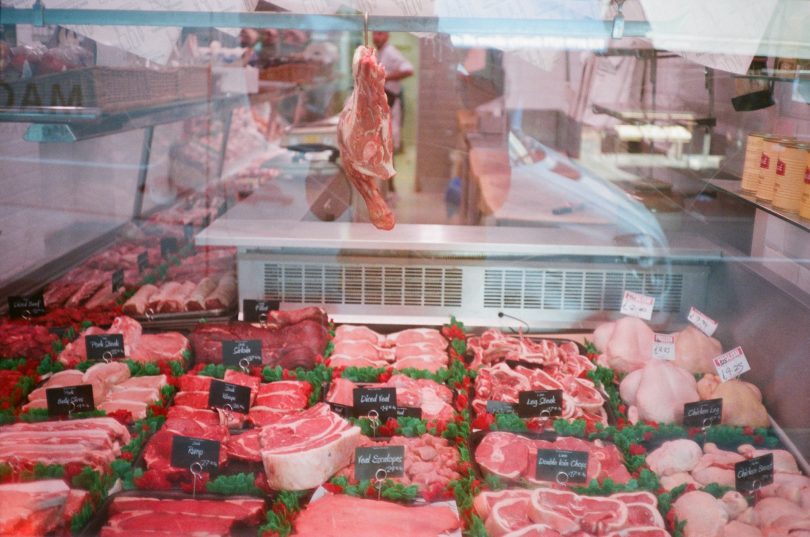First up: What are Processed Meats?
Let’s define what processed meats are. Most of us assume our typically salty meats, like salami, bacon, hot dogs, and ham are processed – and that’s correct! But, there’s more to it than that.
- Processed meats are essentially any meat that is preserved by smoking, curing or salting, or by adding chemical preservatives.
- These “chemical preservatives” can be nitrates or nitrites, which are added to meats in order to preserve their color and prevent them from spoiling. The negative side to these preservatives is that studies have shown that nitrates/nitrites form cancer-causing compounds or carcinogens when they are eaten frequently.
- Smoking meats also creates carcinogenic compounds which are very damaging to the body.
- Although turkey or chicken versions of these are better, they are still processed and should still be avoided if possible.
Research from AICR (American Institute for Cancer Research) shows any consumption of these processed meats strongly increases our risk of colorectal cancer. There is also possible evidence of them increasing the risk of other cancers like lung, stomach, and pancreatic.
What about the Red Meat?
In addition to the concern about processed meats, AICR has found that eating high amount of red meats in general – beef, lamb, and pork – has been shown to increase the risk for developing colorectal cancer and possibly other cancers as well. It has also shown to increase our heart disease risk.
- AICR found that eating high amounts of red meat – greater than 18 ounces a week – was the upper limit before increasing your cancer risk.
- There are a couple of reasons why diets high in processed and red meats are known to increase the risk for colorectal cancer.
- Red meat contains a compound called haem (gives meat it’s red color) that promotes and enhances the formation of carcinogenic compounds.
- Evidence has shown that when cooking red meat at very high temperatures, compounds called heterocyclic amines (HCAs) and polycyclic aromatic hydrocarbons (PAHs) are formed, which have shown to cause changes in the DNA that may lead to cancer.
So what changes can we do?
- We can start with cutting out or down on things like bacon and sausage as part of a routine breakfast plan. We realize that cut all of these out completely might be difficult, so a better approach might be to consider processed meats a special treat. Having them once and awhile – no more than once/week – would be a good goal to aim for.
- We can also add more chicken, fish, and plant-based protein options into our dinner rotations.
- Meal planning is a great way for you to keep an eye on the amount of red meat you are consuming throughout the week.
- Also think about your prep methods – less grilling of meats, more baking – to limit the charring on the outside, causing those HCAs and PAHs to form.
However, there is one meal that is often the most problematic with these choices – Lunch.
Make Lunch Count!
For many of us who live busy lifestyles, the thought of setting aside some time to have a relaxed, uninterrupted lunch break can seem like a pipe dream. During these moments, it’s usually easiest to go for some sort of cold sandwich or a wrap – something that’s convenient, easy to make, and oftentimes available wherever you might be.
However, when it comes to the quality of the ingredients in these convenience meals, we might not always be aware that some of those ingredients, particularly the meat cuts, can actually be causing us more harm than good! Grabbing a deli sandwich or hamburger patty at lunchtime every once in a while won’t necessarily impact your cancer risk; however, there are some ways you can make healthier food choices that will work towards making your mealtime count for the better:
Try These Healthy Swaps!
- Replace processed deli meats with fresh chicken, turkey or fish
- Chicken, turkey and fish are lean meats, meaning they are lower in fat while still being excellent sources of protein. This turkey wrap is a great option!
- Give vegetarian sausages a try over pork sausages, bacon or salami!
- Vegetarian sausages are virtually free from saturated fats, which are fats found in animal products that contribute to the development of a number of health conditions like high cholesterol, diabetes, and even some cancers.
- Instead of adding sausages and fatty pork to chilis or sauces, sprinkle in some beans such as red beans, kidney beans or lentils.
- Not only will you be eliminating a lot of the fat, but you’d be adding a great source of fiber! This tex-mex vegetarian chili as a great choice!
- Mix it up by trying different sources of protein like eggs, low-fat cheeses (cottage cheese, mozzarella), Greek yogurt and even hummus!
- Add more variety to your meals by switching up your protein sources every couple of days.


